The main intoxicating ingredient in cannabis is delta-9-tetrahydrocannabinol (THC). The psychoactive properties of THC were first described in the 1940s, however, our understanding of the cannabinoid dramatically improved once the Israeli scientist Rafael Mechoulam synthesized this molecule in 1965. While federal laws in the United States classify marijuana as a Schedule I substance, stifling research into possible benefits, adult-use and medical marijuana legalization has helped unearth more information on this complex plant.
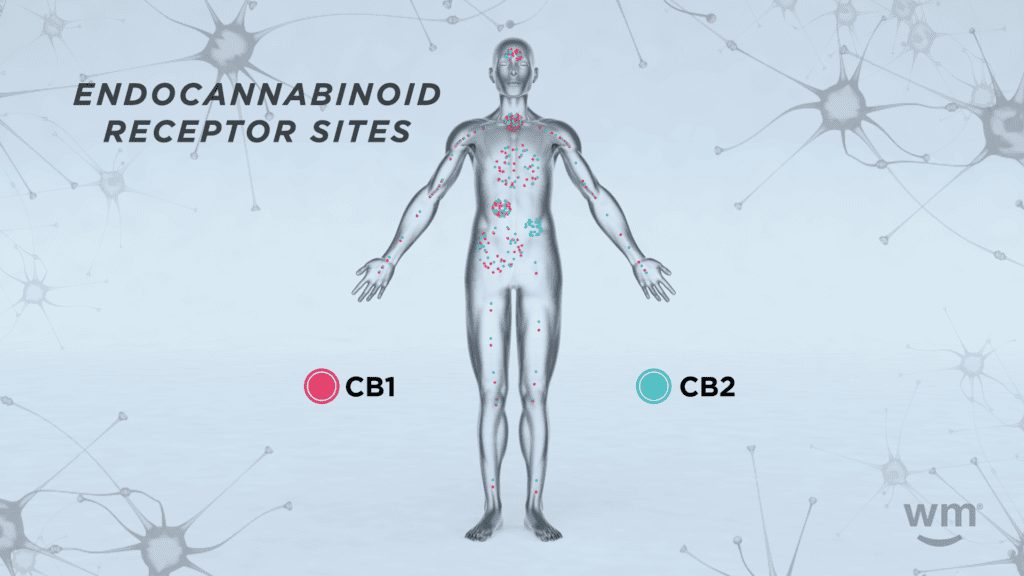
THC is an agonist, or activator, of the cannabinoid 1 (CB1) receptor. When cannabis is given to people who have had their CB1 receptors blocked (by a different drug, called an antagonist), cannabis cannot get them high. So, we know that the CB1 receptor must be the critical target in the brain that produces intoxication.
Brain imaging studies have shown increased blood flow to the prefrontal cortex region of the brain during THC intoxication. This region of the brain is responsible for decision-making, attention, and other executive functions, like motor skills. In short, THC intoxication can affect any of these functions to varying degrees depending on the person.
Another important factor in cannabis intoxication involves the brain’s reward circuitry, which feeds emotional and memory processes. Ultimately, the activity in these regions produces pleasurable sensations and emotions that encourage us to revisit that burger place for a calorie-dense meal or ask a potential mate out on another date.
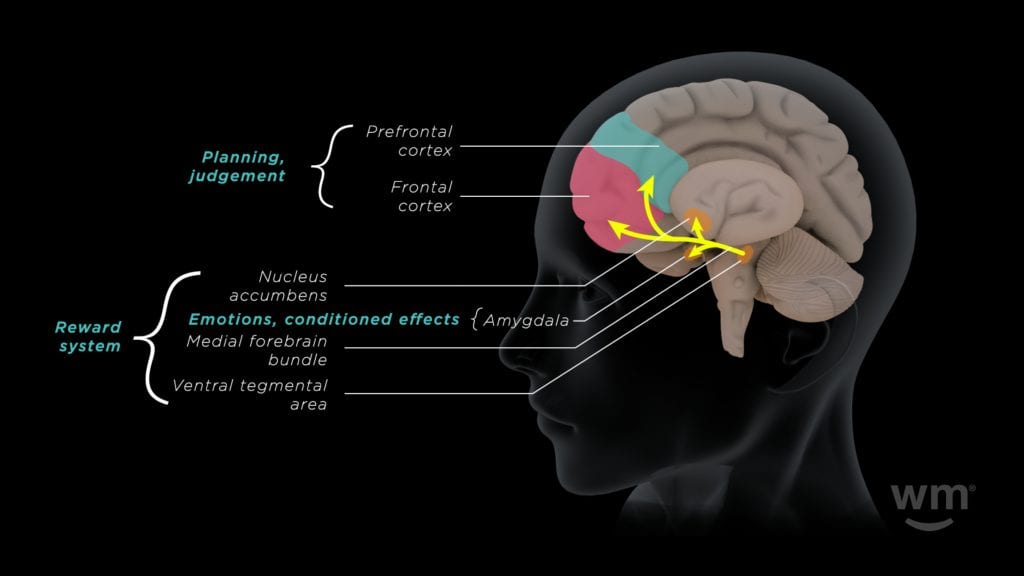
Cannabis activates the brain’s reward pathway, which makes us feel good, and increases our likelihood of partaking again in the future. THC binding to CB1 receptors in the brain’s reward system is a major factor in cannabis’ ability to produce feelings of euphoria.
But THC is far from the only ingredient in cannabis that has a direct impact on brain function. The most notable comparison is with cannabidiol (CBD), which is the second most abundant cannabinoid found in the plant. CBD is often touted as non-psychoactive, however this statement is somewhat misleading. Any substance that has a direct effect on the function of the brain is considered to be psychoactive. CBD most certainly creates psychoactive effects when it interacts with the brain and central nervous system, as it has very powerful anti-seizure and anti-anxiety properties.
Other cannabinoids play different roles in the ECS
CBD is indeed psychoactive; it’s just not intoxicating. In other words, the answer to the question ‘does CBD get you high?’ is no. The reason for this is that unlike THC, CBD is exceedingly bad at activating the CB1 receptor. In fact, evidence suggests that it actually interferes with the activity of the CB1 receptor, especially in the presence of THC. When THC and CBD work together to affect CB1 receptor activity, users tend to feel a more mellow, nuanced high and have a much lower chance of experiencing paranoia compared to the effects felt when CBD is absent. That’s because THC activates the CB1 receptor, while CBD inhibits it. A February 2010 studyfound that THC and CBD can have opposite effects on regional brain function, which could help explain why CBD tends to temper the effects of THC. Taking a closer look at the CBD vs THC dichotomy and the effects of each on the body’s cannabinoid receptors, however, reveals a more complex picture of how the two interact. Despite the noted differences between CBD and THC, the presence of both cannabinoids appear to balance the effects.
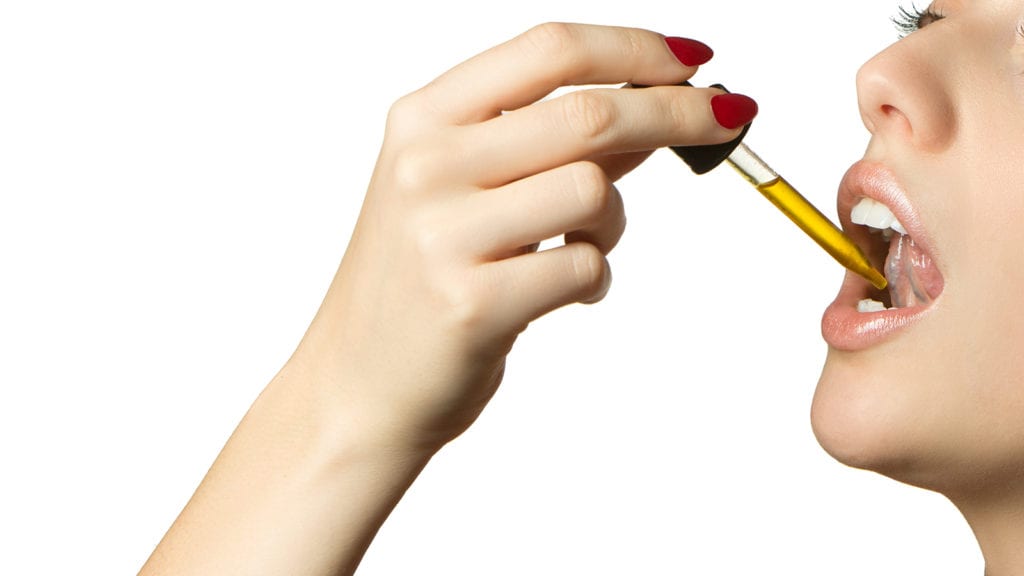
For instance, CBD may protect against cognitive impairment associated with overexposure to THC. In a series of studies on the cognitive effects of heavy or daily cannabis use, participants who had smoked cannabis with higher levels of CBD exhibited better memory recall than those who had lower doses of CBD. A 2013 study administered THC to participants and found that those who had been given CBD prior to THC administration showed less episodic memory impairment than patients who had been given a placebo — further indicating that CBD may curb THC-induced cognitive deficits.
CBD may also protect against THC-induced psychosis. Two separate population-based studiesconducted by the same team found that people who used THC alone were more prone to psychosis (or schizophrenia-like symptoms) than those who used THC and CBD. A more recent study, published in March 2018, found that, when used alongside antipsychotic medication, CBD helped reduce symptoms in patients with schizophrenia. More clinical data is needed to explore CBD’s anti-psychosis effects more completely, but its potential for reducing the risk of THC-induced psychosis symptoms is already apparent.
Cannabinoids interact with many systems in the body
Beyond CB1 receptors, THC and CBD bind to several other targets. CBD, for example, has at least 12 sites of action in the brain. And where CBD may balance the effects of THC through inhibiting CB1 receptors, it may have other effects on THC metabolism at different sites of action.
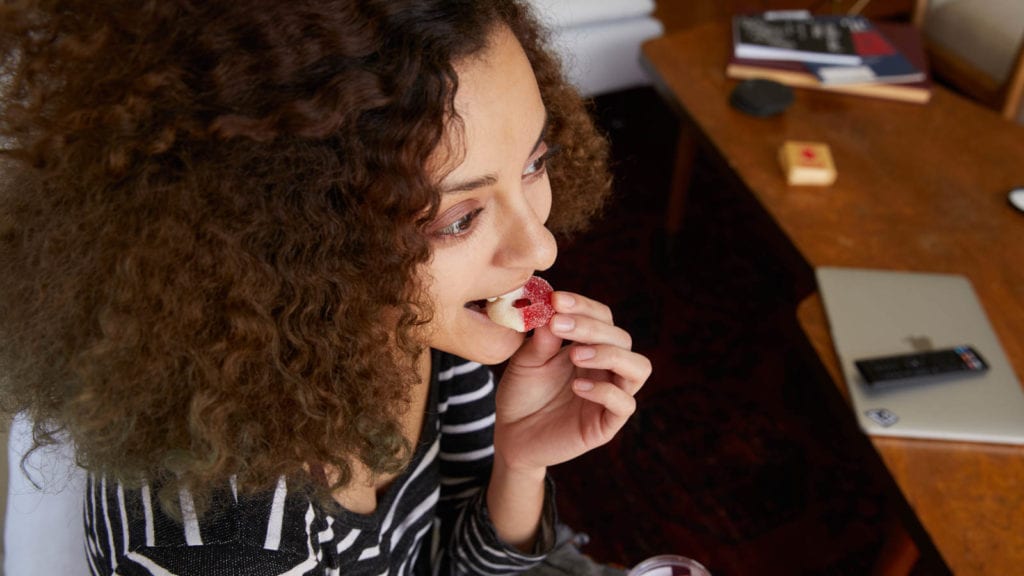
As a result, CBD may not always inhibit or balance THC’s effects. It may also directly enhance THC’s positive effects. CBD does, for example, have the potential to synergize, and even enhance THC-induced pain relief. THC is both an anti-inflammatory and neuroprotective antioxidant, largely due to its activation of CB1 receptors in the pain-control area of the brain. A study from 2012 revealed that CBD targets alpha-3 (α3) glycine receptors, a crucial target for pain processing in the spine, to suppress chronic pain and inflammation. It’s an example of what’s called the “entourage effect,” in which the combined effect of different cannabis compounds work together as a whole to produce a greater effect than if working separately. But even this interaction is not entirely clear. In a February 2019 study, researchers found that low doses of CBD actually enhanced the intoxicating effects of THC, while high doses of CBD reduced the intoxicating effects of THC.
Terpenes play a key part in the entourage effect
The entourage effect can be evoked by consuming cannabis products that contain both THC and CBD, and marijuana strains can offer specified levels of each of the two cannabinoids. High CBD marijuana strains, for instance, will have different, less intoxifying effects than strains with higher THC levels. Even some hemp-derived CBD oil contains small trace amounts of THC, but not at levels that would cause any intoxicating effects.

Things get particularly interesting when other cannabinoid and terpene molecules are consumed alongside THC and CBD. Although we are just beginning to understand the isolated effects of cannabinoids such as CBN, CBC, and CBG, their ability to bind to targets in the brain means they could potentially enhance, reduce, prolong, or in some other way modulate the effects of THC. It’s entirely possible that some of cannabis’ most well-known side effects (such as couch lock) may have very little to do with THC itself, but rather, the relative contributions of these lesser-known molecules. Terpenes, which are the largest group of known phytochemicals in cannabis, have also proven to be a critical piece to this puzzling entourage effect. Not only do terpenes give cannabis a distinct flavor and aroma, but they also appear to support other cannabis molecules in producing physiological and cerebral effects.
Cannabis is a complex plant with relatively little available research into its effects and interactions with the human body — and we’re just beginning to learn the many ways cannabis compounds work together and interact with our cannabinoid receptors to change the way we feel.

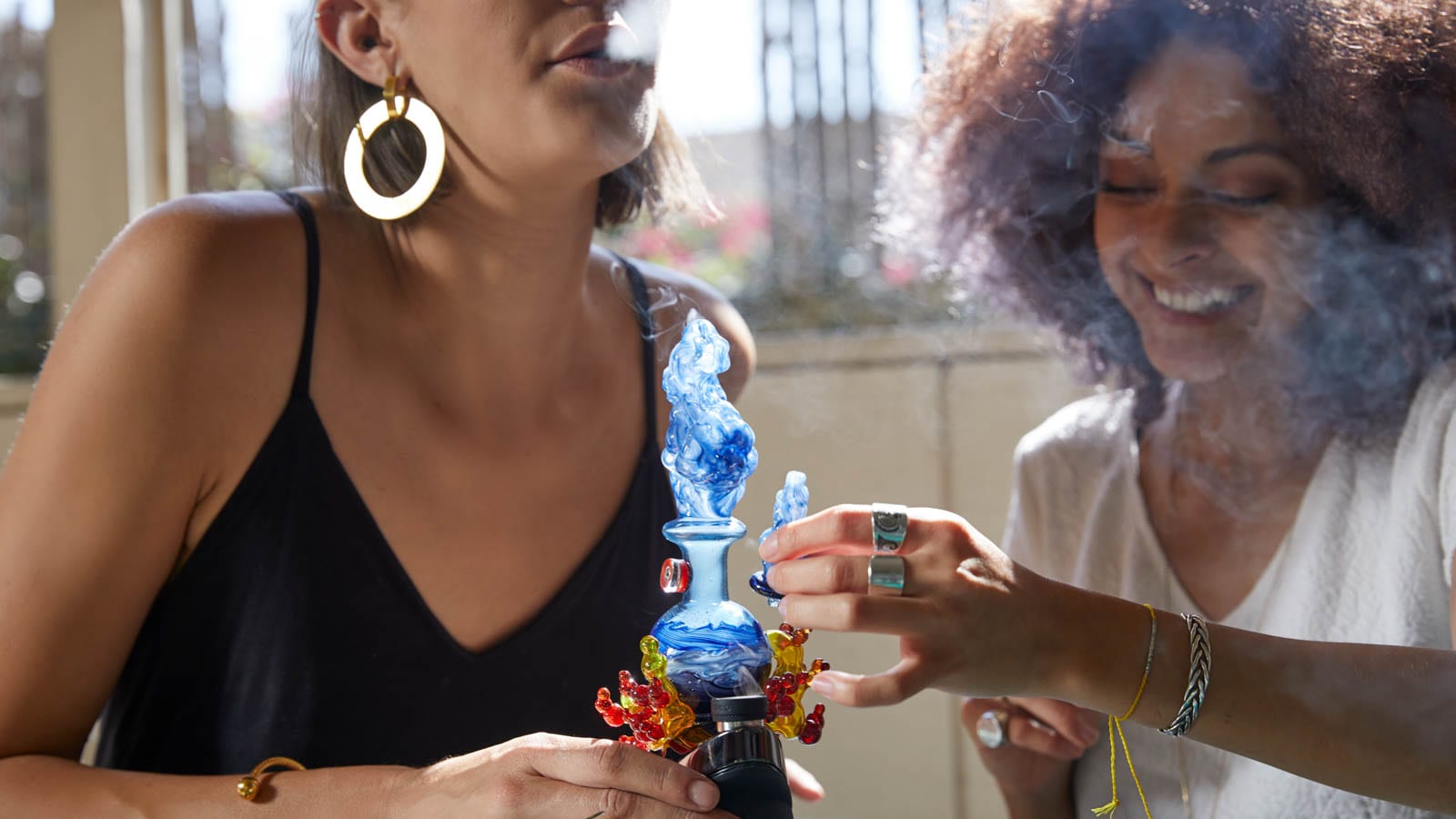


Leave A Comment
You must be logged in to post a comment.